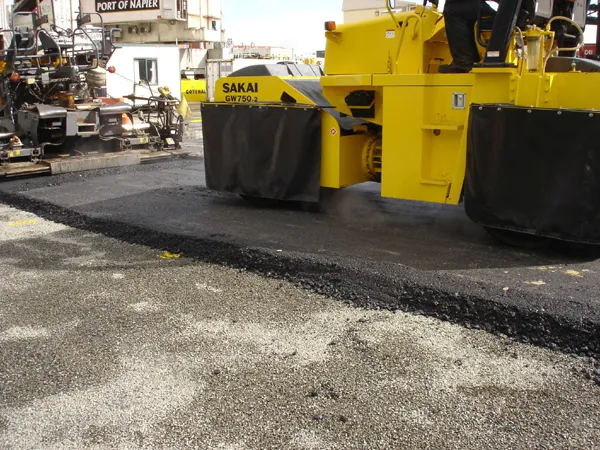Chemical giant ICL is now promoting Poly Posphoric Acid (PPA) in Europe, presenting it to FIRM13. PPA can be added to bitumen by itself or with polymers and has been used in the US for 35 years, becoming more popular in the last 15.
“This is related to the recognition that PPA can safely bring bitumen quality to within specifications and the demonstrated synergies in polymer modified bitumen,” said René Maldonado, manager technical development at ICL Performance Products. “PPA is now being used by sever
August 23, 2013
Read time: 2 mins

Chemical giant ICL is now promoting Poly Posphoric Acid (PPA) in Europe, presenting it to FIRM13. PPA can be added to bitumen by itself or with polymers and has been used in the US for 35 years, becoming more popular in the last 15.
“This is related to the recognition that PPA can safely bring bitumen quality to within specifications and the demonstrated synergies in polymer modified bitumen,” said René Maldonado, manager technical development at ICL Performance Products. “PPA is now being used by several of the major European bitumen producers.”And as specifications become more performance-oriented, polymer modified bitumen will also be more widely used; PPA can improve the performance and the cost of these materials.
“In combination with SBS polymers, PPA has a significant effect,” said Maldonado. “The product is both superior and less expensive. Addition of PPA to bitumen allows for a decrease in the content of SBS polymers without a sacrifice of the properties.”
ICL has been conducting studies in Germany at the Baustofflabor, Hamburg and the Technical University of Braunschweig to counter any concerns about PPA. Tests at the Baustofflabor demonstrated that PPA does not cause accelerated ageing or a catalytic effect, according to ICL.
PPA is corrosive to mild steel and carbon steel and so must be handled accordingly. But once it has been mixed into bitumen in low doses, no corrosive effect is seen, according to ICL.
In addition to its research programmes in Europe, ICL has formed alliances with DynamicSales in Hamburg and RCC Partners in Italy. “We will be looking to collaborate in field trials where PPA benefits could be demonstrated over a period of years under a wide range of environmental and traffic conditions,” said Maldonado.









